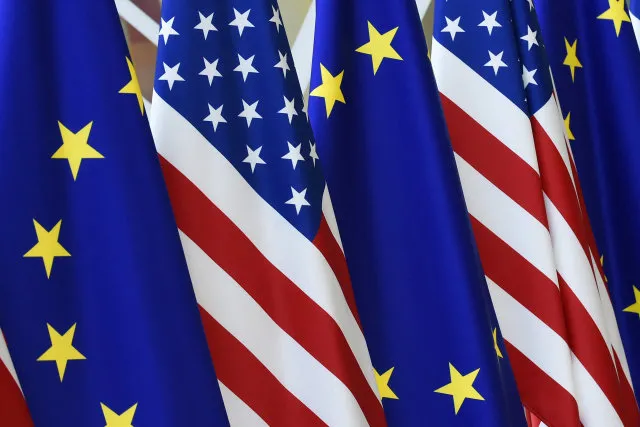Dow Futures Rally After European Union Agrees to Fast-Track Trade Talks
In a significant development in international trade relations, Dow Futures experienced a notable rally following the European Union’s agreement to fast-track trade negotiations with the United States. This decision comes after a weekend phone call between European leaders and former President Donald Trump, highlighting an ongoing effort to ease tension and avoid the potential fallout from tariffs imposed on both sides.
Details of the Agreement
The EU’s commitment to expedite trade talks with the US marks a decisive step towards re-establishing a beneficial economic partnership. Key officials from both the EU and the US have agreed to prioritize discussions surrounding critical sectors, which are considered essential for the economies of both regions. These sectors include technology, agricultural products, and renewable energy, with the aim of removing barriers that have hampered growth and cooperation.
Market Reactions
Investors reacted positively to the announcement, with the Dow Futures showing an uptick as the trading day commenced. The optimism surrounding the potential for reduced tariffs and increased trade volume between the two economic giants has instilled confidence among investors. Analysts believe that this development could lead to sustained growth in the markets, as businesses start to prepare for a more favorable trading environment.
The Context of EU-US Trade Relations
The trade relationship between the EU and the US has been fraught with challenges in recent years. Under the Trump administration, tariffs on steel and aluminum imports prompted retaliation from the European bloc, leading to a tit-for-tat scenario that hurt consumers and manufacturers alike. The Biden administration has also had to navigate complex diplomatic waters as it seeks to mend fences with allies while addressing domestic economic conditions.
Focus on Critical Sectors
During the upcoming trade talks, the EU is expected to focus on several critical sectors significantly impacted by tariffs and trade restrictions:
- Agricultural Products: The US is one of the largest agricultural exporters, and the EU has expressed interest in reducing barriers to allow greater access to American agricultural goods. This includes discussions around import quotas and tariffs on products like soybeans and corn.
- Technology: The tech sector has been a point of contention, with concerns around data protection and service barriers. EU leaders aim to facilitate a smoother flow of technological goods and services, which could lead to innovation and economic growth.
- Renewable Energy: As both the US and EU push towards renewable energy solutions, discussions will also revolve around cooperation in green technologies. This sector is seen as a critical area for growth and job creation in both economies.
The Role of Trade Negotiators
With the fast-tracked talks, trade negotiators from both sides will need to work diligently to outline frameworks that provide mutual benefits. This may require creativity in legislative approaches, particularly in sectors where regulations have previously created friction. Both sides have vested interests in ensuring that trade doesn’t just return to pre-existing levels, but expands to meet modern economic needs.
Potential Challenges Ahead
Despite the positive outlook, several challenges could impede the fast-tracked discussions. Domestic pressures, such as concerns over job losses due to increased competition and long-standing political opposition to trade agreements, may complicate negotiations. Additionally, the influence of various lobbying groups will play a crucial role in shaping the final agreements.
Implications for the Future
If successful, the outcomes of these negotiations could set a precedent for future international trade agreements, not just between the EU and the US, but globally. A cooperative approach may inspire other nations to reconsider their own trade relationships and foster an environment conducive to economic growth and development.
Conclusion
The decision by the European Union to fast-track trade talks with the United States signifies a considerable move toward improving transatlantic relations. The accompanying rally in Dow Futures reflects investor confidence and a burgeoning optimism in the markets. As both parties prepare for negotiations, they have a unique opportunity to redefine their partnership in a way that promotes lasting economic prosperity, benefiting businesses and consumers alike. The outcomes of these discussions may well determine the trajectory of international trade for years to come, making the next few weeks crucial for both regions.







